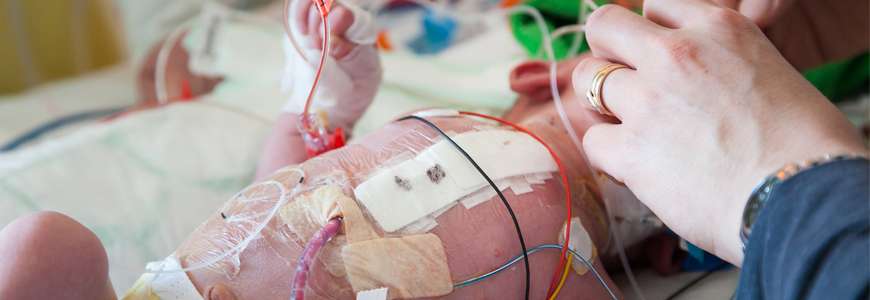Duke’s Pediatric and Congenital Heart Center performed the highest volume of congenital cardiac surgeries in its history during 2018 while improving mortality outcomes for the most complex surgeries involving neonates, infants, children and adults.
The center’s outcomes during 2018 indicated improvements in overall mortality, high complexity mortality and neonatal mortality:
- 1% overall mortality rate
- 2.1% mortality rate in high complexity cases
- 1.9% mortality rate in cases involving neonates
Of the 530 procedures performed in 2018, 96 were characterized as STAT Mortality Category 4 or 5, which represents a 45% increase over the number of similar procedures performed during 2017. STAT 4 or 5 cases are associated with the highest mortality rates.
Joseph W. Turek, MD, PhD, a specialist in complex congenital cardiovascular procedures who was appointed chief of Duke’s Pediatric Cardiac Surgery Program in August 2017, has restructured and expanded the surgical and support teams to focus on innovative procedures that can help families facing complex challenges.
“Our center is now staffed and prepared to provide the most innovative responses to the highest-risk challenges in pediatric and congenital heart care,” says Turek, who pioneered the all-region perfusion technique for the Norwood operation and arch reconstruction.
Turek says the Duke program is poised to begin a high-growth phase. In addition to Turek, the surgical team includes Nicholas D. Andersen, MD. Their expertise includes single-ventricle surgery, complex neonatal heart repairs, and pediatric heart transplantation. Richard A. Krasuski, MD, director of the Adult Congenital Heart Disease Clinic, leads the adult program and also serves as director of hemodynamic research.
“As our outcomes improve, we attract increasingly complex referrals that allow us to help more of these young patients and their families,” Turek says. “Our reputation for developing the novel all-region perfusion technique for the Norwood operation and arch reconstruction brings us referrals from across the nation.”
Highlights of the Duke program
The surgeons are experienced in the full range of heart surgeries and have embraced breakthrough techniques that improve mortality and minimize the effects of surgery. Among the highlights of the Duke program:
- Performed the first aortic valve ring annuloplasty repair in pediatric patients.
- Offer new minimally invasive approaches for adolescents and adult congenital cardiac surgery patients, including video-assisted lead placement, pulmonary valve replacement, partial anomalous pulmonary venous return repair, and anomalous coronary procedures.
- Deploy mechanical circulatory support, including Ventricular Assist Devices (VAD) and Extracorporeal Membrane Oxygenation (ECMO), to support patients.
- Perform biventricular repair and biventricular conversion for select patients with single-ventricle heart disease.
- Initiate groundbreaking translational research for pediatric heart and thymus co-transplantation for immune tolerance associated with heart transplantation.
